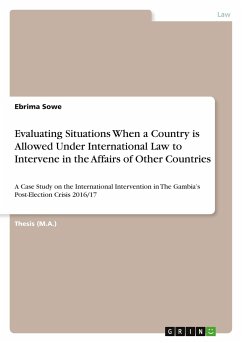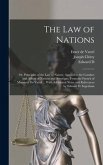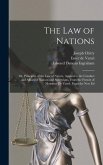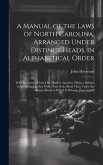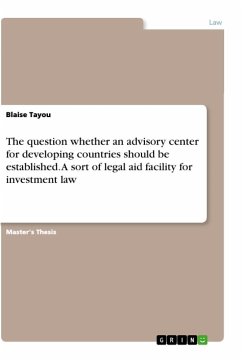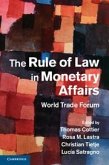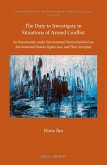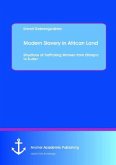Thesis (M.A.) from the year 2021 in the subject Law - European and International Law, Intellectual Properties, grade: Cum Laude, Christian-Albrechts-University of Kiel (Walther Schücking Institute for International Law), course: LL.M International Law (Magister Legum), language: English, abstract: This thesis aims to study the legality of unilateral and regional intervention by states through the influence of regional and or sub-regional organizations in the context of the international law principle of non-intervention focused on the Gambia Post- election crisis 2016/17 as a case study. This paper will give a legal descriptive analysis of the International law principle of non-intervention as this area is one of the most controversial concepts of international law. In the process of discussing this research area, I will be analysing the legality and legitimacy of International interventions in the Gambia post-election crisis 2016/17 and in the process, assess the legitimacy of contemporary interventions in their determining factors. In Chapter 1, this thesis contains a general assessment of whether humanitarian intervention is consistent with the purposes of the United Nations which is highly debatable in the academic field of International law. In assessing this question, an evaluation is made on the interpretation of Article 2(4) of the UN Charter. Chapter 2 of this thesis contains an elaborate discussion on The Gambia Post-election crisis and seeks to answer whether the threat to use of force by ECOWAS and AU was actually authorised by the Security Council in Resolution 2337(?). Other Forms of intervention are as well revisited in the discussion to assess whether the Use of Force and intervention by African regional organization ECOWAS was consistent with the UN Charter. This Chapter also gives a bird¿s eye view on the mandate of regional organizations and an evaluation of their legal instrument in relation to The Gambia as a member of such African organizations. This includes a discussion on Gambiäs status on the ECOWAS Protocols. Finally, Chapter 3 focussed on the new trend of Pro-democratic Intervention in Africa, and how the Gambiäs case study is of good or bad precedence.
Bitte wählen Sie Ihr Anliegen aus.
Rechnungen
Retourenschein anfordern
Bestellstatus
Storno

